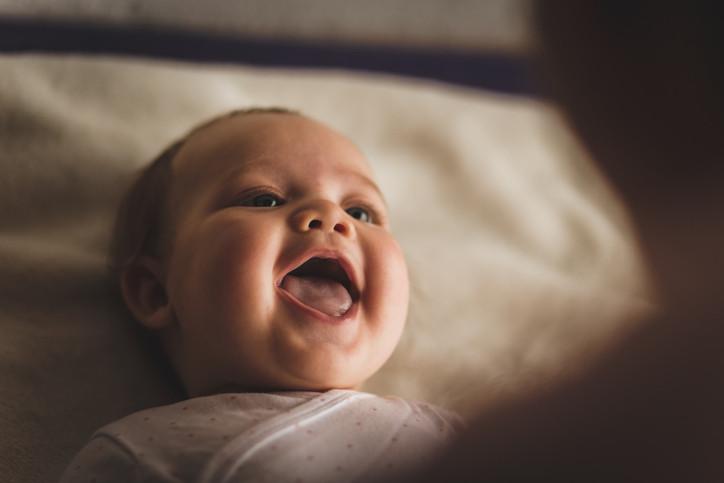In a world filled with wonders, few sights can match the sheer delight of a baby happily munching on their own tiny toes. This adorable behavior, often met with laughter and coos from parents, may raise a few eyebrows and spark a flurry of questions. Why do these little ones find their feet so irresistible? Is it just a quirky phase of development, or is there more to this endearing habit than meets the eye? As we delve into the fascinating world of infant behavior, we’ll explore the reasons behind this seemingly odd yet charming practice. From sensory exploration to self-soothing, join us on a journey to understand what makes booties such a big deal for our littlest companions.
Exploring the Fascination: The Sensory World of Babies and Their Feet
As babies begin to explore the world around them, their feet quickly become a source of fascination. These tiny appendages, often adorned with cute socks or bare for a delightful sensory experience, serve as an entry point for their burgeoning curiosity. When a baby chows down on their own feet, it’s not just an adorable act; it’s a natural exploration of taste, texture, and sensation. Babies engage in this behavior for several reasons, including:
- Self-Soothing: Chewing on their own feet may provide comfort, helping to ease teething pain.
- Discovery: The feet are one of the first parts of their body that babies can see and reach, making them ripe for investigation.
- Communication: Such actions can also indicate healthy developmental milestones as they learn about their bodies.
This exploration is more than just a cute moment caught on camera; it’s a vital part of their sensory development. Through the act of nibbling on their feet, babies engage with their own bodies and the environment, establishing a foundation for future sensory experiences. The textures of their skin, the taste of their feet, and the simple act of play contribute significantly to their holistic growth. To underline this process, consider the following points:
| Foot Exploration Benefits | Developmental Impact |
|---|---|
| Enhanced sensory awareness | Boosts motor skills and coordination |
| Encourages tactile exploration | Promotes fine motor development |
| Promotes self-identity | Builds confidence and autonomy |
Developmental Milestones: What Foot Eating Reveals About Growth
Watching a baby enthusiastically gnaw on their own toes can be both amusing and puzzling for parents. This charming behavior is more than just a quirky habit; it offers insights into vital developmental milestones. When infants begin to explore their feet, it indicates a growing awareness of their body and an emerging ability to grasp objects, which is a fundamental aspect of their physical development. As they play with their feet, babies engage their senses, experimenting with textures and tastes that help them understand their world better.
Moreover, foot-eating often signals a baby’s advancing motor skills and cognitive function. By bringing their feet to their mouths, babies are honing their fine motor skills and practicing coordination, which is essential as they prepare for more complex movements. This phase of discovery also lays the groundwork for future behaviors, such as self-feeding. Some key aspects to consider include:
- Exploration: Engaging with their feet is a safe way for babies to learn about their bodies.
- Sensory Development: This action stimulates their taste, touch, and visual senses.
- Motor Skills: Demonstrates the development of hand-eye coordination.
Safety First: Ensuring Hygiene While Embracing This Habit
While it may seem adorable to witness a baby munching on their toes, it’s essential to prioritize hygiene in this endearing practice. Babies naturally explore their world through taste, and their feet are often within easy reach. To ensure that this habit remains safe and clean, caregivers should regularly check the little one’s feet for any signs of dirt, redness, or irritation. Here are some tips to maintain proper hygiene:
- Regular Cleaning: Bathe your baby regularly and pay special attention to their feet to remove dirt and sweat.
- Keep Nails Trimmed: Short nails prevent scratching and reduce the risk of infections.
- Monitor for Allergies: Be vigilant for any reactions to socks or shoes, which can cause discomfort.
In addition to routine cleanings, it’s beneficial to create a suitable environment for foot exploration. Soft, sanitized surfaces encourage babies to play and interact comfortably with their feet. Consider keeping play areas clean and free from hazardous items. Below is a simple checklist to ensure a safe and hygienic foot-tasting experience:
| Checklist Item | Frequency |
|---|---|
| Inspect Feet for Cleanliness | Daily |
| Wash Baby’s Feet | During Bath Time |
| Trim Nails | Weekly |
| Clean Play Area | Daily |
Encouraging Healthy Exploration: Alternatives to Satisfy Curiosity
As little ones embark on their journey of self-discovery, they often find themselves fascinated by their own bodies. This playful behavior can be harnessed into other forms of exploration that nurture their curiosity in a healthy manner. By introducing a variety of sensory experiences, you can channel this interest into activities that stimulate their minds and bodies. Consider engaging them with:
- Textured Toys: Opt for items with various textures that they can touch and manipulate.
- Interactive Books: Look for books that include flaps, mirrors, and different materials to keep their attention.
- Art Supplies: Non-toxic crayons or finger paints allow for a colorful and tactile exploration.
- Nature Walks: Stimulate their curiosity about the world by exploring parks and gardens together.
In addition, incorporating gentle guided activities can refocus their interest from munching on toes to other joyful pursuits. Create a playful environment with structured playtime that includes:
| Activity | Benefits |
|---|---|
| Baby Yoga | Enhances flexibility and body awareness |
| Splash Play | Encourages sensory exploration while keeping it fun |
| Musical Instruments | Improves auditory skills and promotes rhythm |
| Baby Sensory Classes | Fosters social interaction and cognitive development |
Q&A
Q: Why do babies eat their feet?
A: Babies often explore their bodies by putting them in their mouths. Eating their feet is a part of their natural development process, allowing them to learn about different textures and shapes.
Q: Is it safe for babies to eat their feet?
A: Generally, yes! As long as their feet are clean, it’s perfectly safe. Babies have strong instincts for exploration and self-soothing, and this habit can be part of that process.
Q: At what age do babies typically start eating their feet?
A: Most babies begin this adorable habit around the age of 6 months when they become more mobile and capable of reaching their feet. However, some may start even earlier or later depending on their individual development.
Q: Can this habit be a sign of something more serious?
A: In the vast majority of cases, it’s just a normal part of exploration and development. However, if you have concerns about your baby’s behavior or development, consulting a pediatrician is always a good idea.
Q: Do babies eat their feet for comfort?
A: Yes! For many babies, sucking on their feet can provide comfort and be a soothing activity, similar to thumb-sucking. It’s a self-soothing mechanism that can help them relax.
Q: Is there anything parents should do when their baby eats their feet?
A: Enjoy the moment! It’s a normal phase of development. Just ensure that their feet are clean, and perhaps take the opportunity to introduce them to other safe, teething-friendly toys.
Q: Are there any developmental benefits to this behavior?
A: Absolutely! This behavior helps in developing fine motor skills, hand-eye coordination, and sensory exploration. It’s all part of learning about their world and their own body.
Q: Will this habit last as the baby grows up?
A: Most likely, this behavior will diminish as children grow and develop other ways to explore and interact with their environment. It’s just one of the many charming quirks of infancy!
Q: How should parents react when they see their baby eating their feet?
A: Parents should react positively, possibly by laughing or making it a playful moment. It’s important to encourage exploration while keeping an eye on hygiene and safety.
Q: Is it common behavior for all babies?
A: Yes, most babies go through this phase to some extent. While each child is different and may have varying interests or habits, the tendency to explore with their mouths is a shared trait among infants.
Q: How can parents encourage other forms of exploration?
A: Provide a variety of safe toys, textures, and objects for babies to explore. Interactive playtime and sensory experiences also help broaden their exploration beyond their own feet!
Wrapping Up
As we’ve unraveled the adorable habit of babies nibbling on their own toes, it’s clear that this peculiar behavior is a blend of curiosity, exploration, and self-soothing. While it may seem whimsical, this foot-eating phase is a natural part of development, offering insights into how infants perceive their world. So, the next time you catch your little one in the act, remember that it’s more than just a cute sight; it’s a crucial step in their growth and sensory discovery. Embrace the giggles, capture the moments, and revel in the delightful journey of early childhood—where even munching on toes is a charming part of learning about life. After all, in a world full of wonders, sometimes the simplest things spark the greatest joy—or in this case, a foot-full of giggles!


